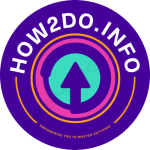Introduction:
Coding, also known as programming, is a valuable skill in today's digital age. It allows you to bring your ideas to life, create software applications, build websites, and solve complex problems. If you're a beginner looking to embark on your coding journey, this comprehensive guide will provide you with the necessary steps and resources to get started.
1. Understand the Basics:
Before diving into coding, it's essential to understand the basics. Familiarize yourself with key concepts such as algorithms, data types, variables, and control flow. You can find numerous online resources, tutorials, and introductory courses that explain these fundamental concepts in a beginner-friendly manner.
2. Choose a Programming Language:
Selecting a programming language is a crucial step. There are several popular options, each with its own strengths and areas of application. Python, JavaScript, and Java are great choices for beginners due to their readability, versatility, and extensive community support. Research each language's features, application domains, and job market demand to make an informed decision.
3. Set Up Your Development Environment:
To start coding, you'll need a suitable development environment. This typically involves installing a code editor or integrated development environment (IDE) specific to your chosen programming language. IDEs such as Visual Studio Code, PyCharm, or Atom offer features like code autocompletion, debugging tools, and project management capabilities, making your coding experience more efficient.
4. Learn the Syntax and Structure:
Every programming language has its own syntax and structure. Begin by learning the basic syntax rules, including how to write variables, functions, and conditional statements. Online tutorials, coding bootcamps, and interactive platforms like Codecademy, FreeCodeCamp, or Udemy can guide you through the learning process with hands-on exercises and practice projects.
5. Start with Simple Projects:
Put your newfound knowledge into practice by starting with simple coding projects. Build a basic calculator, create a web page with HTML and CSS, or write a program that generates a Fibonacci sequence. These small projects will help you reinforce concepts, gain confidence, and improve your problem-solving skills.
6. Join Coding Communities:
Connect with fellow beginners and experienced coders by joining coding communities and forums. Platforms like GitHub, Stack Overflow, and Reddit provide opportunities to ask questions, seek guidance, and collaborate on projects. Learning from others and being part of a supportive community can accelerate your learning journey.
7. Practice Regularly:
Consistency is key when learning to code. Dedicate regular time to practice coding exercises, solve programming challenges, and work on personal projects. Practice strengthens your problem-solving abilities, helps you become familiar with different coding techniques, and solidifies your understanding of the language you're learning.
8. Embrace Documentation and Online Resources:
As a beginner, you'll often encounter unfamiliar concepts or encounter challenges while coding. Embrace the power of documentation and online resources like official language documentation, tutorial websites, video tutorials, and online forums. These resources provide valuable explanations, code examples, and troubleshooting guidance to assist you in overcoming obstacles.
9. Collaborate on Open Source Projects:
Once you've gained some proficiency, consider contributing to open source projects. Open source projects are publicly available software projects that invite collaboration from developers worldwide. Contributing allows you to improve your skills, work on real-world applications, and collaborate with experienced developers.
10. Never Stop Learning:
Coding is an ever-evolving field, and there's always something new to learn. Stay updated with industry trends, new technologies, and programming best practices. Continuously expand your knowledge through online courses, workshops, conferences, and reading books related to coding and computer science.
Conclusion:
Embarking on your coding journey can be both challenging and rewarding. By following this beginner's guide, understanding the basics, choosing a programming language, setting up your development environment, and consistently practicing, you'll be well on your way to becoming a proficient coder. Remember, coding is a lifelong learning process, so embrace curiosity, stay motivated, and enjoy the exciting possibilities that coding offers.








